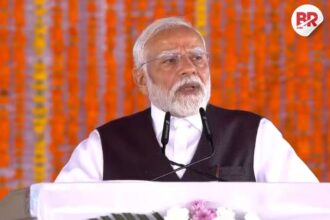
Harvard Faces Enrollment Drop Amidst Trump Visa Actions
Harvard University is experiencing a noticeable decline in student enrollment, with many experts pointing to the Trump administration’s visa policies as a key factor. International students, who have long been vital to the university’s diverse academic environment, now find themselves caught in a web of uncertainty.
The Impact of Trump’s Visa Policies
The Trump administration has made significant changes to U.S. immigration policies, especially concerning student visas. These actions have had wide-reaching consequences, making it harder for international students to study in the U.S. As Harvard is renowned for its global appeal, the university has not been exempt from these challenges.

- Deportation of Foreign Demonstrators: One of the most concerning developments has been the deportation of foreign students who participated in demonstrations. This move has led to an atmosphere of fear among international students, making them think twice before choosing U.S. universities.
- Challenges in Visa Renewal: For students returning home during breaks or family emergencies, visa renewals have become more complicated. These hurdles disrupt their academic journey, creating unnecessary uncertainty.
- Decreased Enrollment Interest: The uncertainty surrounding visa policies has resulted in fewer international students applying to Harvard and other U.S. universities. Many students are now opting for educational institutions in countries with more predictable immigration policies.
Also Read: Trump Demands Apology from Harvard, Threatens to Remove Tax Benefits
A Sharp Decline in International Enrollment
Harvard has seen a significant drop in the number of international applicants, especially from countries like India and China, which have traditionally sent many students to the Ivy League. While the final figures are still under review, early reports indicate a substantial decrease in applications for the current academic year.
- Why Are Students Opting Out? Many students cite fears of deportation and concerns about their safety as the primary reasons for not applying. The ongoing uncertainty about U.S. immigration policies has also played a significant role in deterring students from pursuing their education in America.
- Impact on Campus Diversity: The decrease in international enrollment isn’t just a numbers issue. It threatens to erode the diversity that has long been a defining feature of Harvard’s academic community.
- Economic Implications: International students contribute billions of dollars to the U.S. economy, and a sharp decline in their numbers could have broader economic consequences, affecting everything from university budgets to local businesses.
The Broader Implications for U.S. Higher Education
The drop in international enrollment at Harvard is part of a much larger trend across U.S. universities. The Trump administration’s visa actions have raised serious questions about the future of higher education in the country.
- A Global Talent Exodus: The U.S. has long been a destination of choice for students from around the world. But now, many students are turning to countries like Canada, Australia, and Germany for their higher education, where the immigration policies are more welcoming.
- Long-Term Consequences: The loss of international talent could have long-lasting effects on U.S. universities. Not only could it impact the quality of research and innovation, but it could also diminish the global competitiveness of American institutions.
Also Read: Obama Slams Trump’s $2.3bn Freeze on Harvard: ‘A Ham-Handed Attack on Academic Freedom’
What Does This Mean for the Average Person?
For the average person, this situation could mean a shrinking pool of international perspectives in U.S. classrooms.
It also highlights the growing role of global immigration policies in shaping education, both in the U.S. and abroad. As international students continue to face hurdles, it’s essential to understand the broader implications of these policies on the U.S. economy and the future of education.
The drop in enrollment at Harvard University, largely fueled by Trump’s visa actions, signals a troubling shift in the landscape of U.S. higher education.
International students, once the backbone of American academic diversity, are now reconsidering their options in the face of heightened uncertainty.
While Harvard and other universities continue to adapt, the long-term impact of these changes could alter the future of academic research and global competitiveness.
Also Read: ‘Prove You’re in Love’: US Spouse Visa Process Now Feels Like an Interrogation












